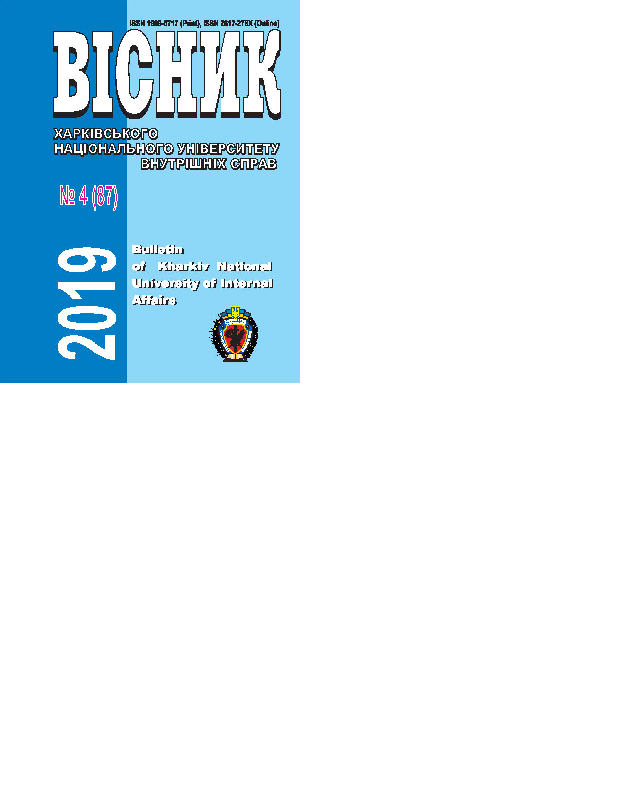Normative and Legal Regulation and Procedure for Bringing Officials to Liability for the Violation of the Right to Public Information’s Access
Abstract
The article focuses on the violation of the right to public information’s access as a constituent of the constitutional right of a person and citizen to information. It is substantiated on the basis of received empirical data that in practice there are cases, where officials of public authorities, who are the stewards of public information, provide inaccurate / incomplete information, in connection with which there is a need for an adequate response to the offense. Attention is drawn to the fact that the provision of inaccurate information by public information’s stewards is one of the most complex problematic aspects for a number of reasons, in particular because of the complexity of verifying the information provided to the requester; the absence of possibility of proving intentionality in the actions of public information’s stewards; the complexity of the prosecution of authorized officials.
Failure to provide information, unlawful refusal to provide information, untimely or incomplete provision of information, provision of false information is qualified by the current legislation as an administrative offense, which has the effect of bringing to justice.
The legal regulation is revealed and the procedure for bringing officials to administrative liability for violations of the right to public information’s access is studied. The participation of the Verkhovna Rada Commissioner for Human Rights in this process is being researched.
It is concluded that, in practice, in regard to normative and legal regulation of the right to public information’s access, the main array of problematic aspects is concentrated mainly not in the legal part, but in the part of strict compliance with the requirements and provisions of the current legislation by the officials, who are the stewards of public information. The procedure for bringing to administrative liability for giving false / incomplete information is institutionally quite simple and effective. However, there is no need to mention that there is an objective need to do a thorough job on changing the approach and, above all, the attitude of public officials to the population; the need to develop and cultivate respect for the individual as the highest social value in the state and maintain a high flawless image, which, among other things, will help to restore public confidence in the state, its agencies and officials.
Downloads
References
Vitkova V.S., 2018. The right to access information in judgments of the European Court of Human Rights [Pravo na dostup do informatsii u rishenniakh Yevropeiskoho Sudu z prav liudyny]. In: National University "Odessa Law Academy" et al. Legal and institutional mechanisms for ensuring the development of Ukraine in the context of European integration [Pravovi ta instytutsiini mekhanizmy zabezpechennia rozvytku Ukrainy v umovakh yevropeiskoi intehratsii]. Odesa, 18 May. Odesa: Helvetyka.
Vitvitskyi S.S., 2017. Public information in the context of citizens’ control over the activities of the state [Publichna informatsiia v konteksti kontroliu hromadian za diialnistiu derzhavy]. Law Journal of Donbass – Problemi pravoznavstva ta pravoohoronnoï dìâlʹnostì [Problems of Law and Law Enforcement], No. 1, pp. 66-72.
Makarova M., 2016. The Supreme Administrative Court of Ukraine explained how to apply the law on access to public information (Part 1) [VASU roziasnyv, yak pravylno zastosovuvaty zakonodavstvo pro dostup do publichnoi informatsii (Chastyna 1)]. Yuryst&Zakon, [online] No. 42. Available at http://uz.ligazakon.ua/ua/magazine_article/EA009761 [Accessed 16 December 2019].
The procedure for filing an appeal to the Commissioner [Poriadok podannia zvernennia do Upovnovazhenoho]. [online] Ukrainian Parliament Commissioner for Human Rights. Available at http://www.ombudsman.gov.ua/ua/page/applicant/how-to-file-a-petition-to-the-commissioner/ [Accessed 16 December 2019].




